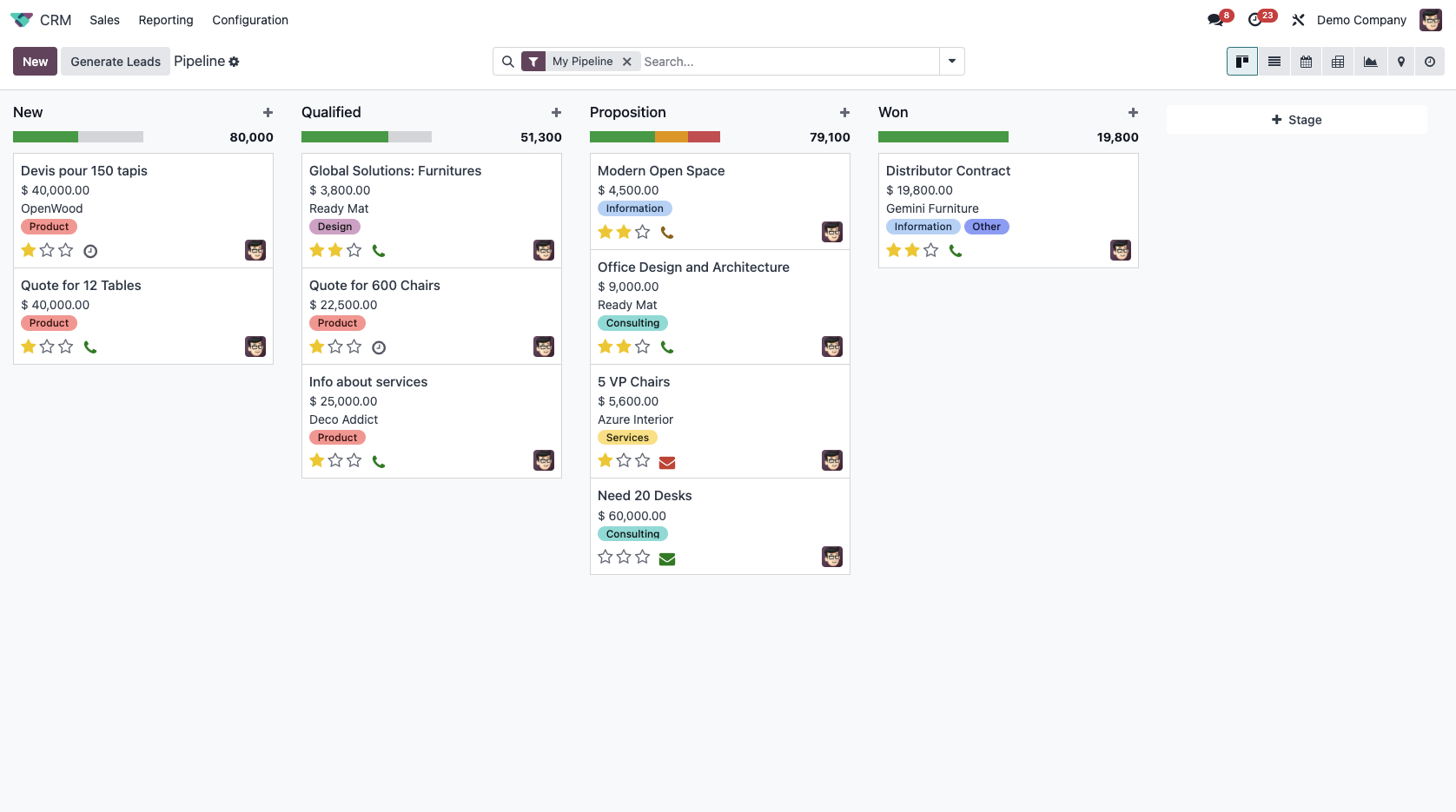If you’ve been exploring ERP solutions, you’ve probably come across Odoo. With its robust range of features, it’s often praised for its ability to help businesses of all shapes and sizes streamline operations. But one burning question stops many in their tracks—should you go with Odoo Community or Odoo Enterprise?
Knowing the key differences between these two editions is essential to finding the right fit for your business. Whether you’re a small start-up or an established organization, this guide will help you compare Odoo Community and Enterprise, making that big decision much easier.
What is Odoo?
First things first—Odoo is a comprehensive ERP (Enterprise Resource Planning) software designed to manage key business functions such as inventory, HR, marketing, and sales. Odoo offers two main editions to suit different needs and budgets:
- Odoo Community (free, open-source)
- Odoo Enterprise (paid subscription with advanced features)
Now, let’s break down what each has to offer.
Key features of Odoo Community
Odoo Community is an open-source, cost-free edition, making it accessible to startups or businesses with tighter budgets. It covers the essentials to get you started on ERP software.
What you’ll get with Odoo Community:
- Core Modules: Manage key areas of your business with modules for CRM, inventory, sales, HR, and basic reporting.
- Customization Options: Since it’s open-source, you can tailor the software to better suit your needs (though you’ll need a tech-savvy team).
- Cost-Efficient: It’s free to use, so you can allocate your budget elsewhere.
Ideal for:
- Startups and small businesses focusing on core functions
- Companies with in-house developers to handle customizations
While Community is fantastic for businesses just starting with ERP, it lacks the depth and finesse of its more advanced sibling—Enterprise.
Key features of Odoo Enterprise
Odoo Enterprise takes the basics of the Community version and supercharges it with premium features built for scalability and advanced functionality.
Features that set Odoo Enterprise apart:
- Advanced Usability: Enjoy enhanced user interfaces, mobile functionality, and faster performance.
- Exclusive Functionalities: Access advanced modules like Marketing Automation, Studio (to build custom apps easily), eSign, and PLM (Product Lifecycle Management).
- Third-Party Integrations: Seamlessly integrate Odoo Enterprise with other business tools like payment gateways, marketing platforms, and shipping solutions.
- Support Services: Enterprise users get dedicated support from Odoo to troubleshoot problems or assist with implementation.
Ideal for:
- Medium to large businesses looking for scalability/li>
- Companies needing advanced features to manage complex workflows
- Those who want easy access to support and automation tools
Comparing Odoo Community vs Enterprise
Now that we’ve covered what each version offers, here’s a direct comparison to help clarify the differences.
| Feature | Odoo Community | Odoo Enterprise |
|---|---|---|
| Cost | Free | Paid subscription |
| User Interface | Basic | Optimized with mobile access |
| Support | Community-based forums | Dedicated support from Odoo |
| Advanced Modules | Limited | Wide variety (eSign, Marketing Automation) |
| Customization | Self-managed | Built-in tools like Odoo Studio |
| Third-Party Integration | Limited | Seamless integration with multiple tools |
When should you choose each?
- Go with Community if: You’re starting small, have a tight budget, or can handle customizations yourself.
- Choose Enterprise if: You’re scaling up, need advanced features, or want professional support.
Pricing comparison
Pricing is a major factor when deciding between Odoo Community and Enterprise. Let’s take a closer look.
Odoo Community:
- Free to download and use, but keep in mind costs for hosting, implementation, and hiring a development team if needed.
Odoo Enterprise:
- Typically operates on a subscription model based on the number of users. Pricing starts at about $20 per user per month, and you may have additional fees for extra modules or integrations.
- While it’s a higher upfront cost, it may save you time and effort in the long run by offering built-in tools and professional support.
For businesses calculating the cost-benefit trade-off, investing in Enterprise can quickly pay dividends with improved operational efficiency.
Pros and cons of Odoo Community and Enterprise
Understanding the strengths and weaknesses of each version can further clarify your decision.
Odoo Community
Pros:
- Free and open-source
- Highly customizable
- Great for startups and small businesse
Cons:
- Limited advanced features
- Requires technical expertise to unlock its full potential
- No access to professional support
Odoo Enterprise
Pros:
- Advanced features and premium modules
- Seamless integration with other business tools
- Mobile-friendly with a polished user experience
- Includes dedicated support team
Cons:
- Requires a subscription fee
- Higher upfront cost compared to Community
Jotform Enterprise: A powerful ERP alternative
If you’re exploring ERP-like solutions but want something that focuses deeply on data collection, workflows, and multi-user collaboration, Jotform Enterprise deserves a look.
Why Jotform Enterprise?
Jotform Enterprise offers tools catered to business optimization, standing out with features like multi-user collaboration, white-label customization, and advanced security.
Key features include:
- Multi-User Collaboration: Perfect for teams needing shared workspaces to access and edit forms collectively.
- White Labeling: Rebrand forms to match your business identity.
- Advanced Security: Includes 256-bit SSL encryption and PCI compliance for secure data management.
- SSO Integration: Simplified login through existing systems.
To learn more about how Jotform Enterprise can simplify workflows, check out this guide on developing an ERP workflow.
Which version should you choose?
When it comes to Odoo Community vs Odoo Enterprise, your decision should align with your business size, complexity, and budget. If you’re operating on a smaller scale and have in-house IT resources, Community is an excellent starting point. But for businesses aiming to scale efficiently, Enterprise offers advanced features and support that easily justify the upgrade. And if your focus is on improving workflows and building efficient data collection strategies, consider powerful alternatives like Jotform Enterprise to complement or replace traditional ERP systems.
Photo by Mikhail Nilov





























Send Comment: